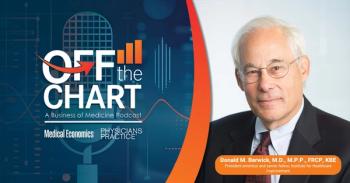
Medicare Annual Wellness Visits Decrease Healthcare Costs
The Medicare Annual Wellness visit can decrease utilization of unnecessary healthcare services. Here's how.
The Affordable Care Act enabled the Medicare Annual Wellness Visit (AWV) as one of its means to curb runaway healthcare costs. The government has made the assumption that the best way to decrease healthcare costs is to decrease unnecessary utilization of healthcare services. The major cost driver in healthcare is overutilization. Overutilization is the unnecessary treatment, tests, and studies that patients undergo each year. Estimates put the waste
The Medicare AWV decreases utilization of unnecessary healthcare services in two ways. The first way is by providing evidence-based preventive services to keep patients healthy. The second way is to provide a health risk assessment (HRA) to identify patients at high risk of utilizing excess healthcare services so that they can receive real-time care coordination. CMS, in a recent advance notice, has stated that it would be appropriate to conduct Medicare Advantage health risk assessments during the AWV.
CMS uses the Medicare Advantage Hierarchical Condition Category (MA-HCC) risk assessment to identify the financial risk of each patient. With the appropriate technology, the provider can easily document the MA-HCC risk score at the time of the AWV. A care coordinator could be contacted at the time of the visit so that care can be provided in real time. Currently, there are third-party providers contracted with MA plans to do risk assessments. In the time between a patient’s AWV with their primary-care provider and notification that the third-party provider has identified that patient as high risk from a HRA, that patient may have been to the ER twice, the physician’s office twice, and have already been hospitalized. Clearly, retrospective risk assessments are of limited value to organizations at financial risk.
In managing the risk adjustment system, CMS has to confront difficult issues of data collection and validity, statistical complexity, and potentially different coding practices among plans and the fee-for-service sector. Each judgment the agency makes for each of those aspects of risk adjustment can increase or decrease payments to Medicare Advantage plans. In the past it has been said that providers may not appropriately code ICD-9/HCC diagnoses. That may have been correct but now there are automated solutions for appropriate ICD-9/HCC coding.
Medicare Advantage plans should incentivize providers to collect ICD-9/HCC codes during the mandatory health risk assessment with an AWV rather than pay non-clinical, third-party providers.
Newsletter
Optimize your practice with the Physicians Practice newsletter, offering management pearls, leadership tips, and business strategies tailored for practice administrators and physicians of any specialty.







